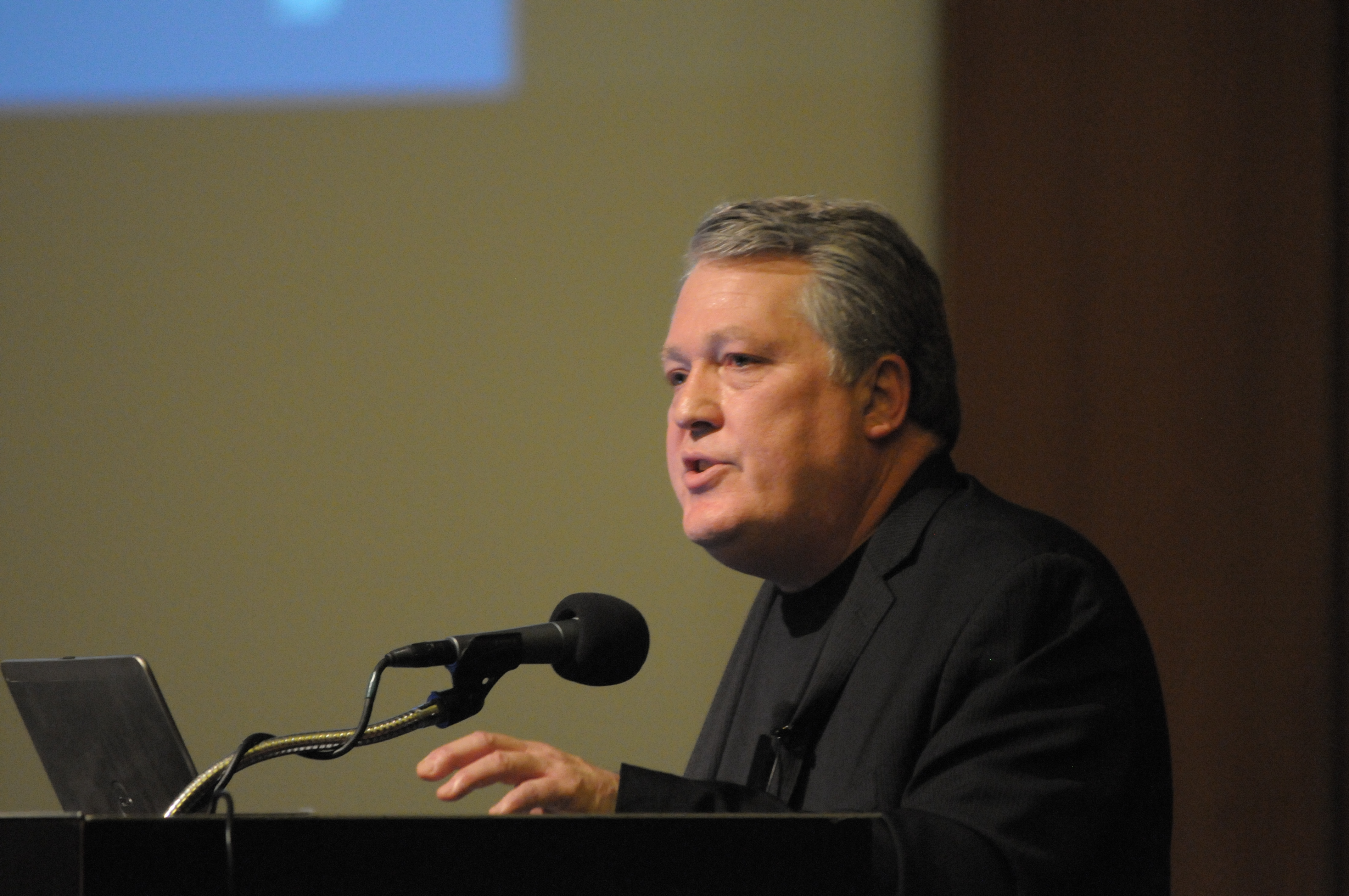WSU School of Social Work

Social Work lecture highlights need for greater understanding of behavioral disorders
Despite a dramatic increase in research over the past decade, behavioral disorders lag significantly behind substance use disorders when it comes to routine screening, diagnosis, and evidence-based treatments, a national addiction expert told a Wayne State audience on Nov. 6.
Delivering the School of Social Work's annual endowed Edith Harris memorial lecture to a full house at the university's Community Arts Auditorium, Matthew Owen Howard said the clinical community's understanding of harmful compulsive behaviors resembles "where we were at 40 years ago with substance abuse disorders." Howard, who is the Daniels Distinguished Professor in the School of Social Work at the University of North Carolina at Chapel Hill, said this lack of data is troubling given the prevalence of behavioral disorders, which he described as common in the general public and prevalent in the clinical population. Though frequently coexisting with substance abuse disorders, behavioral disorders often go undiagnosed because "clinicians have a low index of suspicion for them," Howard noted.
Presenting an overview of eight behavioral disorders - compulsive shopping, compulsive tanning, exercise dependence, love addiction, sexual addiction, Internet addiction, workaholism, and pathological gambling - Howard said research suggests addicts may share a common underlying neurobiology as well as common temperamental traits, such as impulsivity and novelty-seeking. Among other commonalities, addictions frequently follow a progressive course, intensifying over time, and a telescoping course, with women developing dependencies later in life than men but catching up in terms of severity. As a result, Howard said, compulsive behaviors that appear dissimilar might nevertheless respond to similar treatments.
Similar to substance abuse disorders, behavioral disorders can have a devastating toll on those who suffer from them, interfering with health, relationships, finances and work responsibilities. Howard said there is a particular need for research into their causes, for more sophisticated screening and assessment instruments, and for evidence-based treatments, particularly those that address the interplay between behavioral and substance abuse disorders.
Howard, a fellow of both the American Academy of Social Work and Social Welfare and the Society for Social Work and Research who has authored 260 peer-reviewed articles, book reviews, and governmental reports, said social workers can play a critical role in advancing both research and policy related to addiction. Given the psychosocial aspects of addiction, he said, social workers can help identify possible contributing factors such as trauma and abuse. Social workers can also conduct outreach to affected populations, serve as advisors to government agencies that make policy and funding decisions, and help destigmatize addiction through their work.
Cheryl Waites, dean of the Wayne State School of Social Work, said Howard's talk underscored the importance of an interdisciplinary response to addiction - an approach reflected in the school's graduate Certificate in Alcohol and Drug Abuse Studies (CADAS). The certificate, which attracts professionals from such diverse fields as social work, nursing, public health, education, and criminal justice, provides students with biological, psychological, social, cultural, and public health perspectives on addiction.
"Social work is taking a lead role in advancing interprofessional education in critical areas like addiction, which is best understood from the perspective of multiple academic disciplines," Waites said. "Working in concert, we can accelerate the pace of research into behavioral disorders and other societal challenges that demand informed solutions."